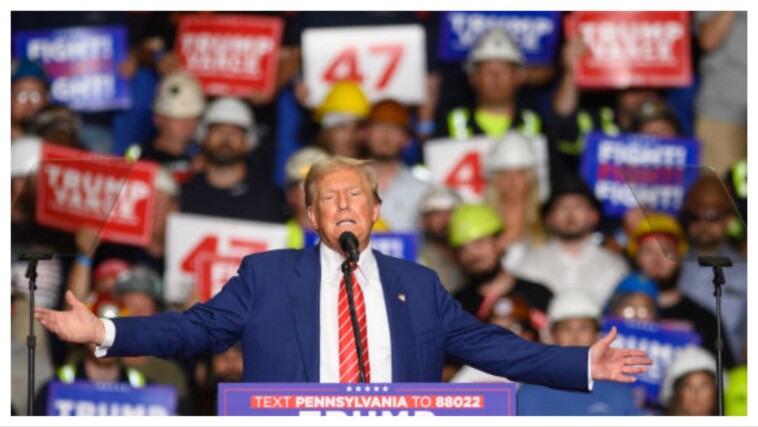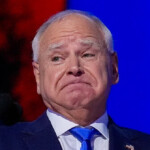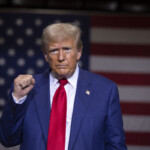Economist Eric Weinstein posited that an “international order” comprised of institutions such as the U.S. State Department, the intelligence community, the Defense Department, and major corporations around the globe may not “allow” former President Donald Trump to become president again.
“I don’t know whether Donald Trump will be allowed to become president,” Weinstein, who received a Ph.D in mathematical physics from Harvard University and serves as managing director for Thiel Capital, said on the “Modern Wisdom” podcast. “I think there’s a remarkable story and we’re in a funny game, which is: Are we allowed to say what that story is, because to say it, to analyze it, to name it, is to bring it into view. I think we don’t understand why the censorship is behaving the way it is; we don’t understand why it’s in the shadows; we don’t understand why our news is acting in a bizarre fashion.”
Tickets for “Am I Racist?” are on sale NOW! Buy here for a theater near you.
Weinstein referred to Mike Benz’s “Rules-Based International Order,” saying, “It’s an interlocking series of agreements, tacit understandings, explicit understandings, clandestine understandings, about how the most basic structures keep the world free of war and keep markets open. And there has been a system in place, whether understood explicitly or behind the scenes or implicitly, that says that the purpose of the two American parties is to prune the field of populist candidates so that whatever two candidates exist in a face-off are both acceptable to that world order.”
“So what you trying to do, from that point of view of the State Department, the intelligence community, the defense department, and major corporations, that have to do with international issues, from arms trade to, I don’t know, food, they have a series of agreements that are fragile and could be overturned if a president entered the Oval Office who didn’t agree with them and the mood of the country was, ‘Why do we pay taxes into these structures? Why are we hamstrung? Why aren’t we a free people?’” he surmised.
“So what the two parties would do is that they would run primaries,” he opined. “You have populist candidates and you’d pre-commit the populist candidates to support the candidates who won the primaries. As long as that took place, and you had two candidates that were both acceptable to the international order, that is, that they aren’t going to rethink NAFTA or NATO or what have you, we called that democracy.”
“And so democracy was the illusion of choice; what’s called ‘magician’s choice,’ where the choice is not actually ‘pick a card, any card,’ but somehow the magician makes sure that the card that you pick is the one that he knows,” he explained. “In that situation, you have ‘magician’s choice’ in the primaries, and then you’d have the duopoly field: two candidates, either of which was acceptable, and you could actually afford to hold an election. And the populace would vote, and that way the international order wasn’t put at risk, every four years, because you can’t have alliances that are subject to the whim of the people in plebiscites.”
WATCH THE TRAILER FOR ‘AM I RACIST?’ — A MATT WALSH COMEDY ON DEI
“So under that structure, everything was going fine until 2016,” he recalled, “and then the first candidate ever to not hold any position in the military nor position in government in the history of the Republic or the Oval Office, Donald Trump, broke through the primary structure. So then there was a full-court press: ‘Okay, we only have one candidate that’s acceptable to the international order. Donald Trump will be under constant pressure that he’s a loser, he’s a wild man; he’s an idiot, and he’s under the control of the Russians.’ And then he was going to be a 20 to 1 underdog.”
“And then he wins. And there was no precedent for this,” he noted.
“They learned their lesson: You cannot afford to have candidates who are not acceptable to the international order and continue to have these alliances,” he concluded.



